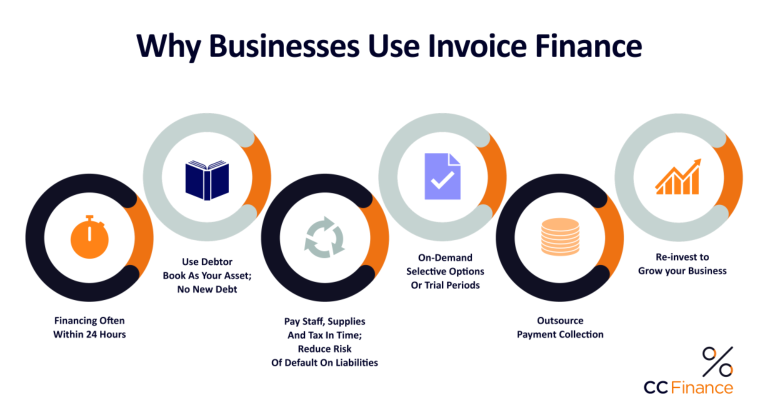The Essential Role of Property Management in Real Estate Success

Real estate can be one of the most rewarding investments you ever make—but let’s be honest: buying property is just the beginning. The true success of your investment often depends on something investors overlook until it’s too late—property management.
Whether you’re a first-time landlord or a seasoned investor with a growing portfolio, the difference between an underperforming property and a cash-flowing asset often comes down to who’s managing it.
So, what exactly makes property management such a vital piece of the puzzle? And how can the right strategy turn real estate into a hands-off wealth-building machine?
Let’s discuss.
What Is Property Management?
Property management refers to the operation, control, and oversight of real estate on behalf of the owner. This includes everything from finding and screening tenants to handling maintenance, collecting rent, managing finances, and ensuring legal compliance.
At its core, a property manager acts as the bridge between the property owner and the tenant—making sure both sides are satisfied, issues are resolved quickly, and the asset continues to appreciate.
Key Responsibilities of a Property Manager
- Marketing the property
- Tenant screening and placement
- Rent collection and enforcement
- Routine and emergency maintenance
- Bookkeeping and financial reporting
- Legal compliance with local housing laws
In short, they take care of the headaches so you can focus on the bigger picture—growing your investment portfolio and generating passive income.
Why Property Management Is Crucial to Real Estate Success
You might be wondering, “Can’t I just manage the property myself?” In some cases, sure. But the real question is: at what cost to your time, peace of mind, and returns?
Here are the key ways professional property management contributes to your real estate success.
1. Maximizing Rental Income
A good property manager doesn’t just fill a vacancy—they optimize your rental income.
Through strategic pricing, staging, and marketing, they ensure you’re not undercharging—or sitting on an empty unit for months. They also know how to reduce turnover, which can eat into profits far more than a slight rent increase.
2. Attracting and Retaining Quality Tenants
Let’s face it: bad tenants cost money.
From unpaid rent to property damage or even legal disputes, poor tenant selection can lead to massive losses. Property managers use professional screening tools, rental history checks, and interviews to find tenants who are reliable, responsible, and likely to stay long-term.
That’s not just good for your wallet—it’s great for your property’s stability.
3. Timely Maintenance and Repairs
Ignored repairs don’t just annoy tenants—they escalate into costly issues.
A property manager ensures maintenance requests are handled promptly. Many even have preferred vendor relationships, meaning you get better service at lower costs.
Plus, regular inspections and preventive care help preserve your property’s value and avoid major expenses down the road.
4. Legal Protection and Risk Mitigation
Ever read your local landlord-tenant laws cover to cover? Probably not.
Property managers stay up to date with rental laws, fair housing regulations, eviction procedures, and local ordinances. They handle lease agreements, notices, and legal filings correctly—reducing your exposure to lawsuits and fines.
That peace of mind? Priceless.
Property Management for Different Types of Real Estate
Let’s discuss how property management varies across different property types.
Residential Properties
Single-family homes and small multi-unit buildings are among the most common investments. Here, management focuses on tenant relationships, routine upkeep, and maintaining neighborhood compliance.
Multi-Family Complexes
With multiple tenants under one roof, systems and communication become critical. Property managers streamline rent collection, coordinate repairs, and often live on-site or conduct frequent inspections to maintain order.
Commercial Properties
Commercial leases are more complex and often long-term. Property management here includes lease negotiation, tenant build-outs, and CAM (common area maintenance) accounting. It requires a more hands-on and financially technical approach.
Vacation or Short-Term Rentals
Managing Airbnb-style properties demands a whole new skill set—frequent cleaning, guest communication, keyless entry systems, and dynamic pricing strategies. Specialized property management firms often handle this niche.
The Real Cost of DIY Management
Some landlords choose to self-manage their properties, especially when starting out. It seems like a way to save money, but often, the hidden costs outweigh the savings.
Here’s what to consider:
- Time: Property management is not a passive job. Emergencies can happen at 2 a.m.
- Stress: Handling tenant complaints, legal notices, and rent disputes isn’t for everyone.
- Mistakes: One overlooked legal detail or delayed maintenance can result in expensive consequences.
- Vacancy Losses: An inexperienced landlord might take weeks longer to fill a unit, losing thousands in the process.
So, is saving that 8–10% management fee worth the risk and hassle? For most investors, the answer is no.
How Good Property Management Builds Long-Term Wealth
Property management isn’t just about today—it’s about what your investment looks like in five or ten years.
Preserving Property Value
Routine maintenance, tenant satisfaction, and clean landscaping all contribute to the long-term value of your property. Well-managed buildings age gracefully and appreciate faster.
Strategic Improvements
A seasoned property manager can advise you on upgrades that increase rent potential and tenant retention—like adding laundry units, updating fixtures, or improving energy efficiency.
Portfolio Growth Support
Planning to scale from one unit to ten or twenty? The right property manager can grow with you, applying their systems and teams to help you expand efficiently without chaos.
What to Look for in a Property Management Company
Let’s say you’re convinced. Now what?
Not all property managers are created equal. Here’s what to evaluate when choosing a firm:
Experience and Specialization
Do they manage properties like yours? A team great at vacation rentals might not excel at long-term residential units. For example, you can explore services like those offered at https://wpmnorthwest.com/snohomish-property-management/ to get a sense of what professional, localized property management looks like.
Transparency and Reporting
Look for clear financial statements, maintenance records, and access to your data through owner portals.
Communication
You want a manager who answers calls and keeps you informed. Poor communication is one of the most common complaints in the industry.
Reputation
Check online reviews, ask for references, and verify licenses or accreditations. A strong reputation means they’re doing right by both owners and tenants.
Should You Hire a Property Manager? Ask Yourself This
Still on the fence?
Ask yourself:
- Do I have the time to manage day-to-day operations?
- Am I familiar with rental laws and compliance issues?
- Do I have a network of vendors and contractors for repairs?
- Can I emotionally separate myself when tenants cause stress?
- Would I rather focus on growth and investment strategy?
If you answered “no” to most of these, then hiring a property manager isn’t a luxury—it’s a necessity.
Final Thoughts: The Hidden Hero of Real Estate Success
Behind every thriving real estate investment is a well-run operation—and behind that operation is effective property management.
It’s not just about collecting rent. It’s about protecting your investment, keeping tenants happy, reducing risk, and building long-term wealth. Whether you manage one unit or a hundred, the systems, experience, and foresight of a property manager can make or break your real estate journey.
So, if you’re serious about growing your income, saving time, and building real estate success that lasts, maybe it’s time to ask yourself:
Do I need to manage my property—or is it time to manage my investment smarter?
Let’s discuss your goals and how the right property management partner can help you get there.



